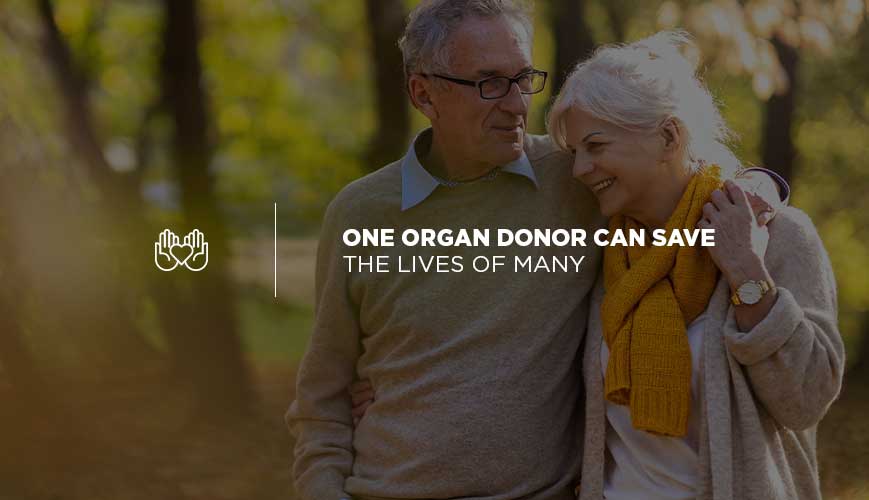One Organ Donor Can Save the Lives of Many
By Martha Michael

When IndyCar driver Justin Wilson was struck in the head by a flying part from another car in a race at Pocono Raceway in 2015, it turned a sunny day with pleasant temperatures into a dark, cloudy memory for his family, friends, and fans. However, Wilson’s death from his injuries saved the lives of six individuals and shined a spotlight on the lasting impact of organ donation. This gift of life seemed to underscore Wilson’s reputation for being among the most gracious and friendly drivers in the world of championship auto racing.
The Need
Though doctors performed more than 40,000 transplants last year, 17 individuals die every day while waiting for an available organ, according to OrganDonor.gov, the website for the Health Resources & Services Administration, or HRSA. There are more than 100,000 men, women, and children on the national transplant waiting list.
More patients are on a waitlist for kidney transplants than all other organs combined and there is a dire need for donors.
Here’s the percentage of American transplant patients waiting for a donation:
- Kidney (83 percent)
- Liver (11 percent)
- Heart (3 percent)
- Pancreas (1 percent)
- Lung (1 percent)
- Other, such as face, hands, abdominal wall (2 percent)
Last year, 90,483 kidneys were needed, but only 24,670 were received. There were 9,236 liver donations to answer to 11,611 individuals on the liver transplant list.
Most organ donors are deceased, but more than 25 percent of donations are received from those who are still alive. Last year, 13,863 organs were received after the death of the donor, while 6,539 were donated by living donors.
Organ Matching
News articles sporadically challenge the politics or methodology of organ donation selection, but medically sound organizations lay out the principles involved in performing the task of matching organs to patients in need.
The United Network for Sharing, or UNOS, provides a link between organs available and transplant candidates using a process of matching that provides the greatest chance of long-term survival. The transplant community has developed criteria for selection including medical and logistical factors which are carried out in three steps:
- Compatibility - Each patient’s features are assessed to eliminate incompatible selections. They include height, weight, blood type, and other medical factors. A computerized system places organ recipients in prioritized order.
- Location - Transport time is important in a successful transplant process. The organ is best preserved with short wait times, which means distance between the donor and the hospital is a consideration in patient selection.
- Size - When a child becomes a donor, the organ will most likely go to a pediatric patient. The recipient responds better to an organ that matches the size of their body’s other organs.
How to Donate
The more thoroughly you prepare and document your desire to become an organ donor, the greater likelihood your wishes will be followed according to plan. If medical professionals and beneficiaries do not find out your intentions until it’s too late, some or all of your organs will be denied, according to the online legal website NOLO.
In America, you can become an organ donor by contacting your state officials managing the organ donor database. At a person’s time of death, the medical personnel search the state’s donor registry to locate the terms you have preordained.
When you register for a driver’s license you are asked your choice regarding organ donation, so your wishes are reflected in the official documentation and on your physical card.
Your healthcare power of attorney should include your plan for organ and tissue donation as well. When it is spelled out in your estate planning documents, it is clear to your beneficiaries that donating healthy organs is a priority.
Don’t Keep It a Secret
Tell your friends and loved ones about your choice to donate your organs when you pass away. It minimizes the chance of confusion or delay at the time of your death and broadens the prospects of a successful gift to someone whose health is in jeopardy.
Justin Wilson won seven races at the highest levels of American open wheel racing, but his legacy beams brightest with a message about the silver lining that can come despite the sorrow of loss. When you register for organ donation, the tragedy of a life cut short can become a posthumous victory no less great: the gift that saves the lives of others.
The information, including but not limited to, text, graphics, images and other material contained on this page are for informational purposes only. The purpose of this post is to promote broad consumer understanding and knowledge of various health topics, including but not limited to the benefits of chiropractic care, exercise and nutrition. It is not intended to provide or be a substitute for professional medical advice, diagnosis or treatment. Always seek the advice of your chiropractor, physician or other qualified health care provider with any questions you may have regarding a medical condition or treatment and before undertaking a new health care regimen, and never disregard professional medical advice or delay in seeking it because of something you have read on this page.